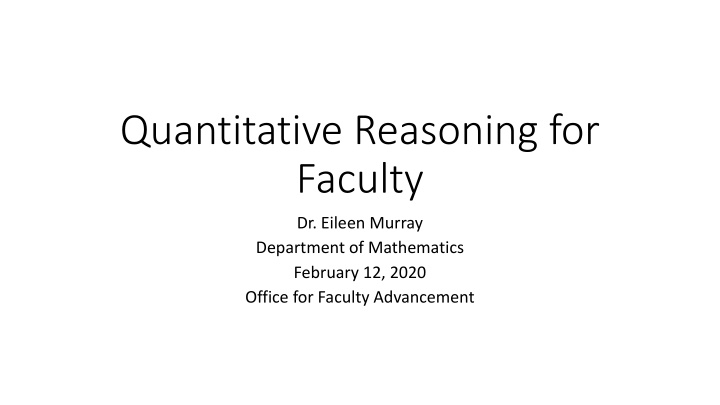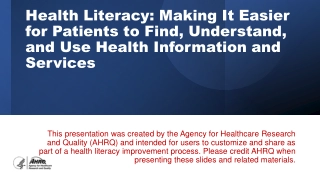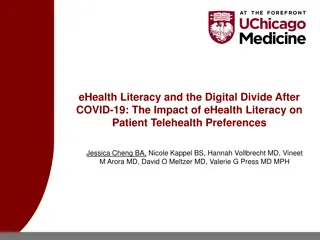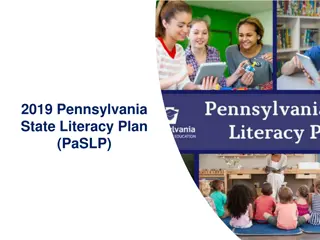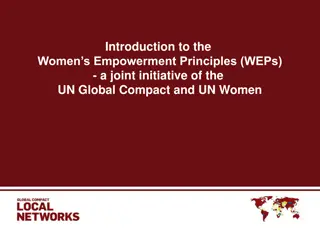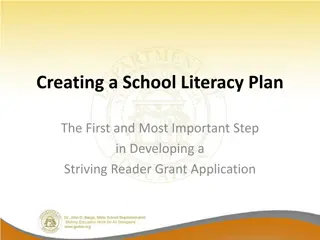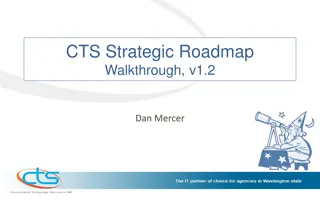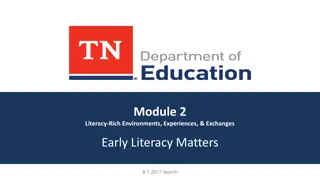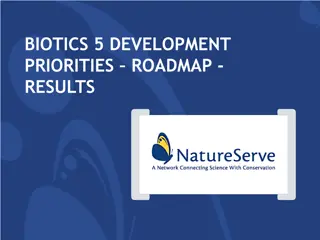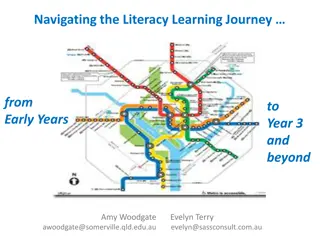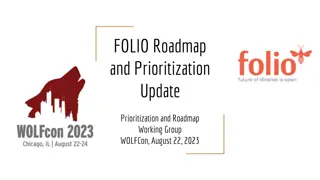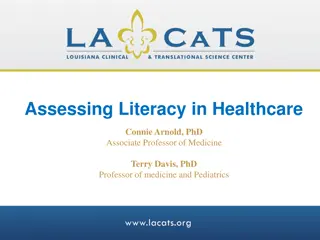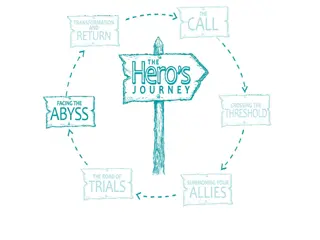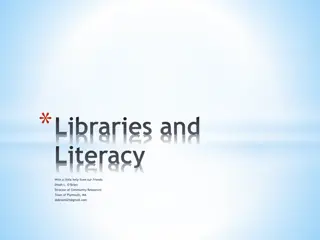Empowering Through Quantitative Literacy: A Roadmap to Mathematical Empowerment
In a modern society filled with data and statistics, quantitative literacy is essential for individuals to think critically, question authority, and make informed decisions. The ability to understand and engage with mathematical concepts is crucial for addressing complex issues and thriving in today's world. Quantitative reasoning is not just about formulas; it's about empowering individuals with the tools to navigate the quantitative aspects of life with confidence and clarity.
Download Presentation

Please find below an Image/Link to download the presentation.
The content on the website is provided AS IS for your information and personal use only. It may not be sold, licensed, or shared on other websites without obtaining consent from the author.If you encounter any issues during the download, it is possible that the publisher has removed the file from their server.
You are allowed to download the files provided on this website for personal or commercial use, subject to the condition that they are used lawfully. All files are the property of their respective owners.
The content on the website is provided AS IS for your information and personal use only. It may not be sold, licensed, or shared on other websites without obtaining consent from the author.
E N D
Presentation Transcript
Quantitative Reasoning for Faculty Dr. Eileen Murray Department of Mathematics February 12, 2020 Office for Faculty Advancement
What do you notice? Talk about what you noticed that supports your claim. What do you wonder? What are you curious about that comes from what you notice? What s going on in this graph? Write a catchy headline that captures the graph s main idea.
Why should we care? Quantitatively literate citizens need to know more than formulas and equations. They need a predisposition to look at the world through mathematical eyes, to see the benefits (and risks) of thinking quantitatively about commonplace issues, and to approach complex problems with confidence in the value of careful reasoning. Quantitative literacy empowers people by giving them tools to think for themselves, to ask intelligent questions of experts, and to confront authority confidently. These are skills required to thrive in the modern world. Mathematics and Democracy, The Case for Quantitative Literacy
A rose by any other name Quantitative literacy Numeracy Mathematical literacy Mathematical competencies Mathemacy
Definitions Programme for International Student Assessment (PISA) [A]n individual s capacity to identify and understand the role that mathematics plays in the world, to make well-founded mathematical judgements and to engage in mathematics, in ways that meet the needs of that individual s current and future life as a constructive, concerned, and reflective citizen. International Life Skills Survey (ILSS, 2000) "An aggregate of skills, knowledge, beliefs, dispositions, habits of mind, communication capabilities, and problem solving skills that people need in order to engage effectively in quantitative situations arising in life and work.
Skills Arithmetic: Having facility with simple mental arithmetic; estimating arithmetic calculations; reasoning with proportions; counting by indirection (combinatorics). Data: Using information conveyed as data, graphs, and charts; drawing inferences from data; recognizing disaggregation as a factor in interpreting data.
Skills Computers: Using spreadsheets, recording data, performing calculations, creating graphic displays, extrapolating, fitting lines or curves to data. Modeling: Formulating problems, seeking patterns, and drawing conclusions; recognizing interactions in complex systems; understanding linear, exponential, multivariate, and simulation models; understanding the impact of different rates of growth.
Skills Statistics: Understanding the importance of variability; recognizing the differences between correlation and causation, between randomized experiments and observational studies, between finding no effect and finding no statistically significant effect (especially with small samples), and between statistical significance and practical importance (especially with large samples).
Skills Chance: Recognizing that seemingly improbable coincidences are not uncommon; evaluating risks from available evidence; understanding the value of random samples. Reasoning: Using logical thinking; recognizing levels of rigor in methods of inference; checking hypotheses; exercising caution in making generalizations.
Quantitative Literacy across Disciplines
Health & Wellness Doctors need both understanding of statistical evidence and the ability to explain risks with sufficient clarity to ensure informed consent. Medicine requires subtle understanding of statistics (to assess clinical trials), of chance (to compare risks), and of calculus (to understand the body s electrical, biochemical, and cardiovascular systems). Social workers need to understand complex state and federal regulations about income and expenses to explain and verify their clients personal budgets.
Social Sciences The social sciences rely increasingly on data either from surveys and censuses or from historical or archeological records; thus statistics is as important for a social science student as calculus is for an engineering student. Interpretation of historical events increasingly depends on analysis of evidence provided either by numerical data (e.g., government statistics, economic indicators) or through verification and dating of artifacts. Study of language has been influenced by quantitative and logical methods, especially in linguistics, concordances, and the new field of computer translation.
Business & work Looking for patterns in data to identify trends in costs, sales, and demand Developing a business plan, including pricing, inventory, and staffing strategies for a small retail store Optimizing networks to develop efficient ways to plan work processes Understanding the value of statistical quality control and statistical process control
QL in your course Choose a course you teach. Write down an example/assignment from this course where you have either (1) incorporated QL, (2) thought to include QL but didn t, or (3) think that QL could be incorporated. What resources/supports do you want/need that would help you effectively incorporate this example/assignment in your course?
Quantitative Literacy: Why Numeracy Matters for Schools and Colleges For democracy to prosper and flourish, we need citizens who not only are able to seek and judge information, to take a stance, to make a decision, and to act in such contexts. Democracy also needs citizens who can come to grips with how mankind perceives and understands the carrying constructions of the world, i.e., nature, society, culture, and technology, and who have insight into the foundation and justification of those perceptions and that understanding. It is a problem for democracy if large groups of people are unable to distinguish between astronomy and astrology, between scientific medicine and crystal healing, between psychology and spiritism, between descriptive and normative statements, between facts and hypotheses, between exactness and approximation, or do not know the beginnings and the ends of rationality, and so forth and so on. The ability to navigate in such waters in a thoughtful, knowledgeable, and reflective way has sometimes been termed liberating literacy or popular enlightenment.
